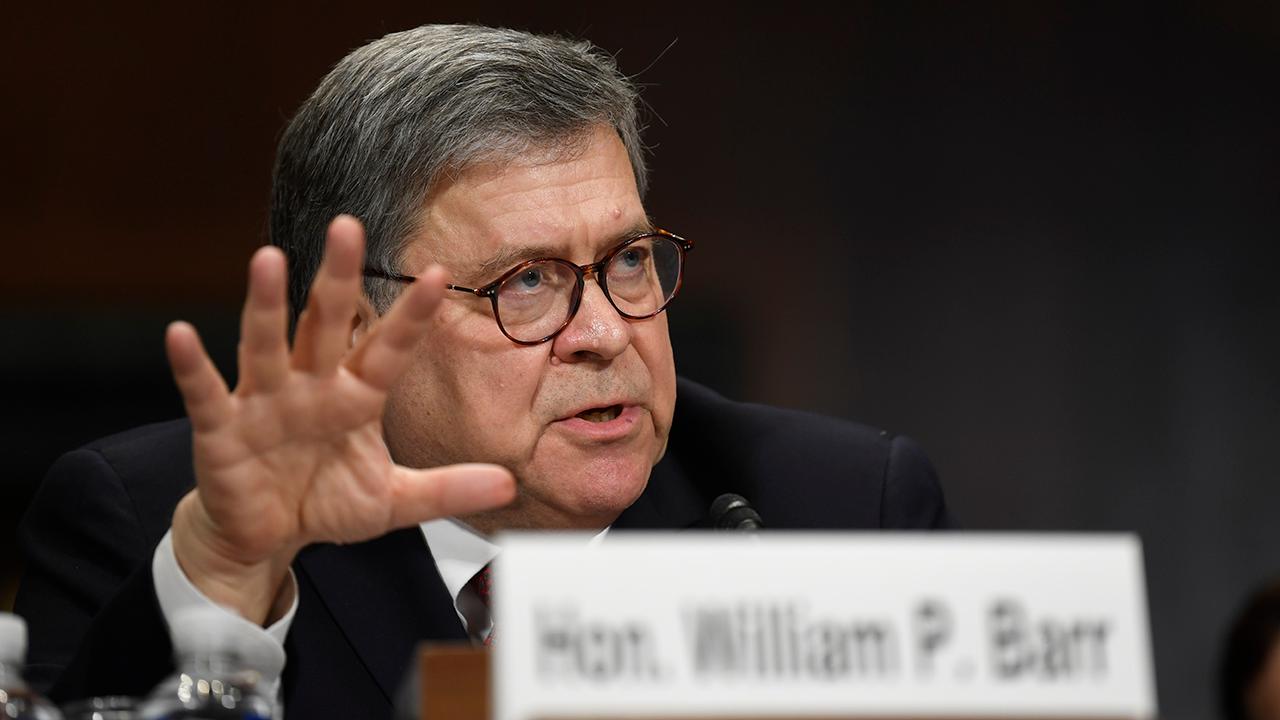Barr contempt proceedings can last through 2020 presidential election: Robert Ray
President Donald Trump invoked executive privilege for the first time Wednesday, blocking lawmakers from acquiring special counsel Robert Mueller’s full report on Russian election interference.
The House Judiciary Committee today also voted on party lines, 26 to 16, to hold Attorney General William Barr in contempt of Congress. Committee Chairman Jerry Nadler, D-N.Y., had previously subpoenaed Barr for a full, unredacted version of the Mueller report.
Robert Ray, former Whitewater Independent Counsel, said it’s notable that Barr is already facing contempt proceedings.
“Well this one is striking, I’ll remind our viewers that Bill Barr has only been in office – for what – less three months? And, low and behold, he now finds himself in the middle of contempt proceeding, which is a rather extraordinary development,” he told FOX Business’ Kennedy on Wednesday.
This could trigger a potentially long dispute in the courts between the executive and legislative branches that could last through the 2020 presidential election. Ray said it is typical of contempt proceedings to get dragged out.
“Most of the time, what happens is it ends up in litigation and it ultimately, really kind of fizzles out,” Ray said. “Because the court system obviously takes so far much longer than any other way to speedily resolve the dispute.”
Multiple democrats said that the withholding of the full Mueller report is unconstitutional. Congresswoman Sheila Jackson, D-Texas, said, “the president now seeks to take a wrecking ball to the Constitution of the United States.” Nadler said it was a “constitutional crisis.”
CLICK HERE TO GET THE FOX BUSINESS APP
Ray said tthat Barr’s office had made efforts to make as much of the Mueller report available to lawmakers, but democrats wanted more.
“It’s a whole lot about procedure, when we’re talking about something really serious, which is contempt. And of course that’s just the bootstrap really for what Nadler wants to do, which is argue that there is a constitutional crisis, when there really isn’t one,” he said.




















